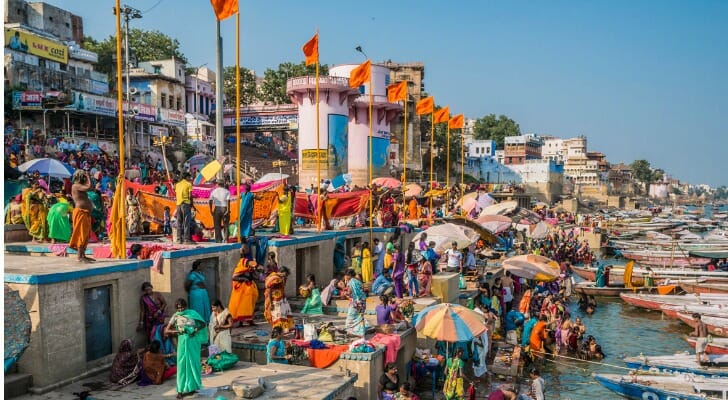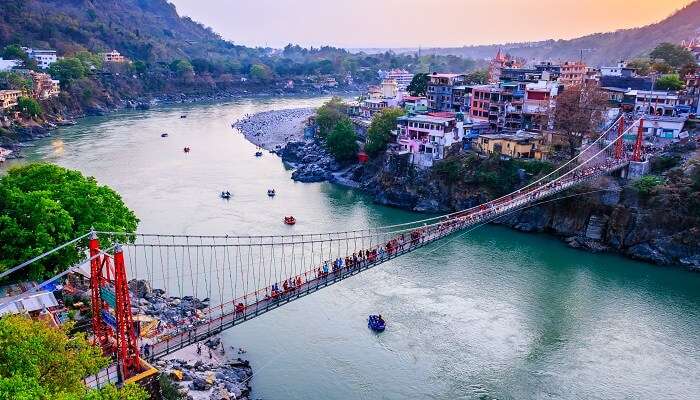Getting a Visa to Retire in India: Costs, Visas, and More
Aug 02, 2022 By Susan Kelly
With a millennia-old history of lively culture, India is recognized for its food, architecture, and colorful festivals. In India, you may be a city slicker, a mountain climber, or a beach bum. Combined with the country's relatively cheap cost of living, India might be a viable alternative for retirees looking for a new place to call home. Before you decide to spend your golden years in India, read this.
Indian Visa

Numerous visas may be obtained for certain occupations or nationalities in India, many of which are customized to the applicant's needs. There is no such thing as a retirement visa. There are many visas available for those who want to stay in India for a long time. As a first step, you can apply for a tourist visa. Your stay in the nation is extended by 180 days with this document. You'll need to leave India for two months to get a fresh visa.
After that, you will be required to reapply for your tourist visa. If a person wants to stay in the nation for the duration of their work, they can apply for a business visa. People of Indian descent can also apply for a visa. An Indian-origin person has had Indian citizenship in the past, is married to someone from India, or possesses a long-term visa for India.
Household and Other Living Expenses in India
Real estate purchases in India can only be made by non-Indian citizens who have been lawfully resident in the country for at least 180 days every year. It is also unlawful to purchase property on a tourist visa or with an Indian native, person of Indian descent, or non-resident Indian. India allows foreigners to rent out their property. According to Numbeo, a cost of living calculator, rent in India is 86.49% cheaper than in the United States.
It costs an average of $167.17 a month to rent a one-bedroom apartment in the middle of a city in India. The national average monthly rent for a one-bedroom apartment in the United States is $1,360.70. There is a national average of $369.90 per month for a three-bedroom apartment in the city core.
India's Tax System

You will not be taxed in India on a tourist visa. You won't be able to get a job either. Taxes on income generated in India must be paid if you have a resident visa. A person is exempt from paying income tax if their annual income is less than 500,000 rupees. After that, you'll be subject to a tax rate of 20% on any income exceeding $6,700.
Several options exist for reducing your taxable income in the United States if you get any of your income from sources outside of the country of residence. The overseas earned income exclusion, the foreign tax credit, and the foreign housing exclusion are just a few options available.
India's Healthcare System
With its free healthcare system, the World Health Organization places India in the bottom half of countries with adequate health care. Health care in India is more closely aligned with western norms because of the country's private sector. In most cases, individuals and families must pay for private healthcare out of their pockets, but a few choose to purchase insurance to cover the costs.
Visitors to India should seek out private medical treatment and health insurance. Western-style public hospitals treat emergencies and non-emergencies in most big cities. Hospitals in India do not accept all health insurance plans, so tourists may have to pay out of cash for their care.
India's Security
Threats of domestic terrorism have been made in India, usually against residents or local governments. In some instances, Western tourists' favorite spots are targeted. Some examples of such places are train stations, dining establishments, and supermarkets. Some Hindu organizations have attacked members of indigenous Christian communities due to religious conflicts between Hindus and Muslims.
For up-to-date information, see the website of the U.S. Department of State. Personal health is also an issue in India. Westerners are urged not to order beverages with ice that might melt and contaminate drinks since they lack the inherent resistance to germs present in water. Additionally, take care of how food and beverages are handled before serving to prevent any health risks for guests.
The Bottom Line
However, even if India is a lovely country with a wide variety of gorgeous destinations, it is not viable to retire in India. On the other hand, visitors can stay for up to six months at a time. In the opinion of some, this is an adequate amount of time to take in the sights and sounds of the surrounding area before continuing on their journey. A retirement in India might be just what you've been seeking if you're an energetic person who enjoys travel and adventure.








